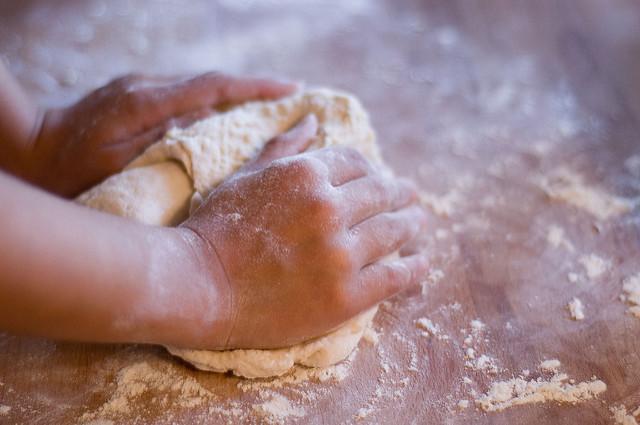Research published today in the New England Journal of Medicine describes how raw flour, an unlikely suspect, caused an Escherichia coli outbreak in 2016.
Because of its low-moisture properties, flour was not thought to be a conduit of E coli bacteria, but a multistate team of investigators discovered that flour processed in one facility was linked to the outbreak.
From December of 2015 to September of 2016, 56 cases of E coli illness in 24 states were reported to state health departments. No deaths were reported, but one patient had hemolytic uremic syndrome, a form of kidney failure and one of the most severe outcomes of E coli infections.
In February of 2016, a team from the Centers for Disease Control and Prevention identified the uncommon strain causing the outbreak as serogroup O121. A complex trace-back investigation linked the illnesses to the consumption of raw flour.
According to the authors of the report, "Pathogenic microorganisms on the wheat or other ingredients in flour can survive the drying process and remain viable in flour for months in a desiccated state." E coli is one of those organisms.
Consumption of flour is not a routine category on epidemiologic foodborne disease outbreak questionnaires. Most raw flour is consumed during the baking of cookies, cakes, or other foods that have multiple ingredients, all of which could harbor pathogens.
During outbreaks, epidemiologists ask patients to list all the foods consumed in the 7 days before symptom onset and to identify if anything they ate has a "sell by" or "use by" date.
Only five patients recalled baking in the week before getting sick, but four of the five said they remembered eating the raw batter or dough 3 to 4 days before experiencing illness, including diarrhea, vomiting, and fever. Eventually it was discovered that 85% of patients questioned baked with the same brand of flour before getting sick.
Recall and danger of E coli
The outbreak led to a recall by General Mills of three flour products, Gold Medal Flour, Gold Medal Wondra Flour, and Signature Kitchens Flour, in May of 2016. Subsequent baking mixes and other General Mills products containing flour were added to the recall throughout the summer.
Investigators said that the outbreak highlights the potential for flour or other dry goods to play host to foodborne pathogens, dramatically increasing the possible suspects in the 265,000 cases of E coli reported in the United States annually.
See also:
Nov 22 N Engl J Med report
CDC outbreak page




















